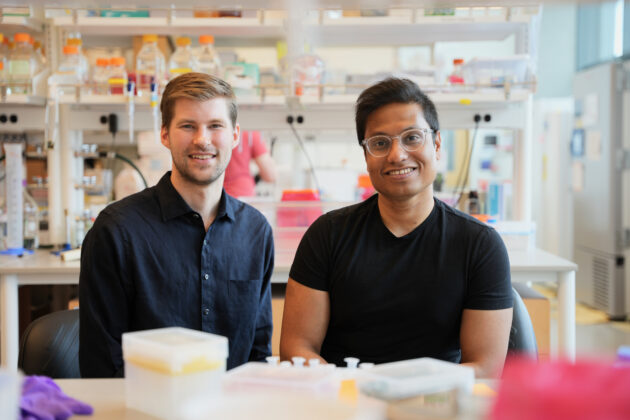Lila Biologics, a startup that spun out of Nobel Laureate David Baker’s lab at the University of Washington, announced a collaboration with pharmaceutical giant Eli Lilly to develop therapies for treating solid tumors.
Lila has also launched two platforms powered by artificial intelligence and machine learning for creating new therapeutic proteins. One is focused on targeted radiotherapy, generating proteins that precisely bind to tumors and carry radioactive isotopes that zap cancerous cells. The other platform is used to build long-acting injectable drugs that gradually release medicine over weeks or months.
The 7-person startup is using its targeted radiotherapy tool in the partnership with Eli Lilly. It hopes to hand off a candidate protein within three to six months so the pharmaceutical company can take the drug through clinical trials.
The Eli Lilly collaboration “really proves we’re ready for prime time,” CEO Jake Kraft told GeekWire. “We have something unique out there and we’re ready to develop medicines.”
Kraft and Chief Scientist Anindya Roy co-founded Lila in 2023. The two worked as postdoctoral fellows in the UW’s Institute for Protein Design, which is directed by Baker.
“With a world-class team and holistic approach to ML-driven protein design in place, Lila Biologics is uniquely suited to advance a new class of tumor-targeted radiotherapies and [long-acting injectable] medicines toward the clinic,” Baker said in a statement.
Baker, who won his Nobel last year in chemistry and is a Lila co-founder, helped create a technology that allows researchers to use AI and ML algorithms to engineer never-before-seen proteins designed to perform specific functions, such as drug delivery or destroying environmental pollutants.
The AI tools from the institute are increasingly successful at creating proteins that function as planned when tested in the lab, saving time and money. Researchers with the Institute for Protein Design in recent months have published papers in top scientific journals demonstrating the technology’s capabilities. That includes creating de novo proteins that bind precise disease markers and others that grab hold of difficult-to-capture, shapeshifting molecules.
The institute has made its foundational AI technology free and publicly available to users worldwide.
In 2023, Lila raised a $10 million seed round led by WRF Capital, SilverArc Capital Management, and Sahsen Ventures, with participation from Boom Capital, Alexandria Venture Investments, Cooley, Pack Ventures, and other private investors, the company told GeekWire.
For the project with Eli Lilly, Lila scientists are going after harder-to-hit tumor targets than most other organizations have pursued.
The team is additionally working on its own pipeline of therapies, including a long-acting injectable to treat pulmonary disease. Lila scientists have candidate-stage drugs and are preparing for investigational new drug studies, which lead to human clinical trials.
“We want to bring medicines to patients,” Kraft said. “We don’t want to just say we’ve designed a protein, but we actually want to be able to say we’ve saved lives.”
Read the full article here









